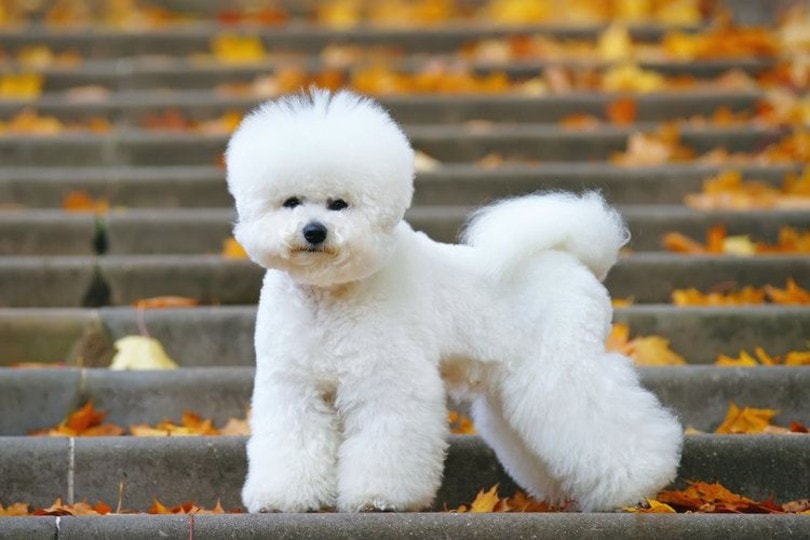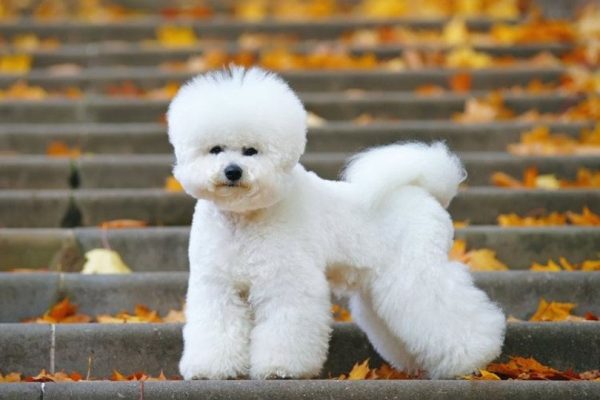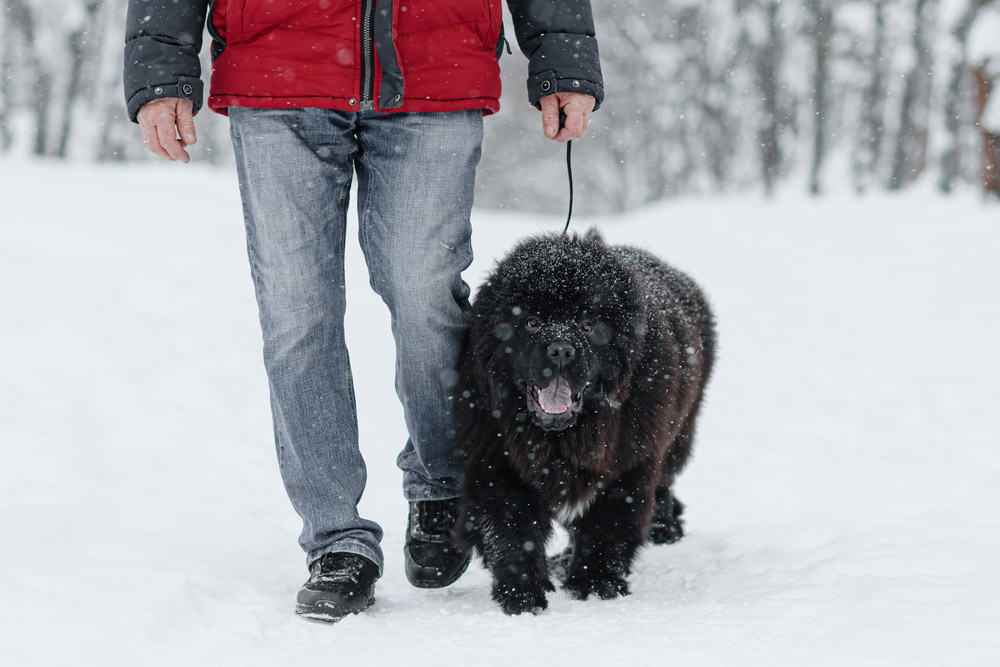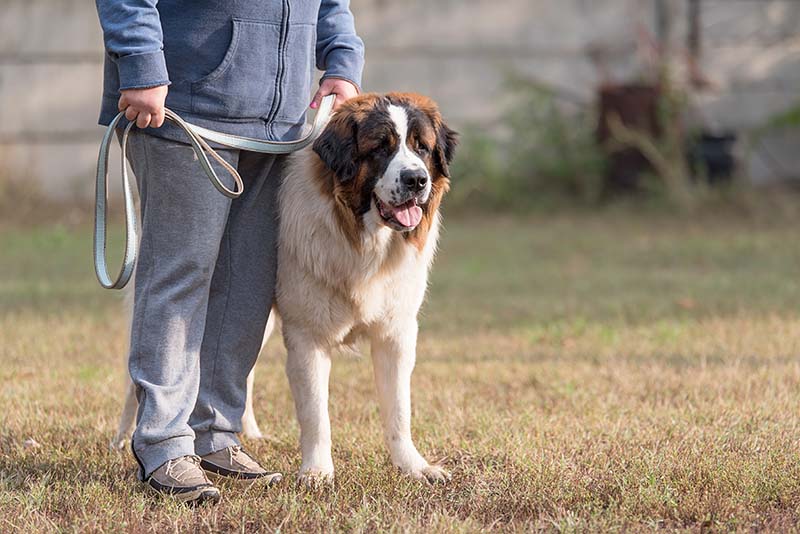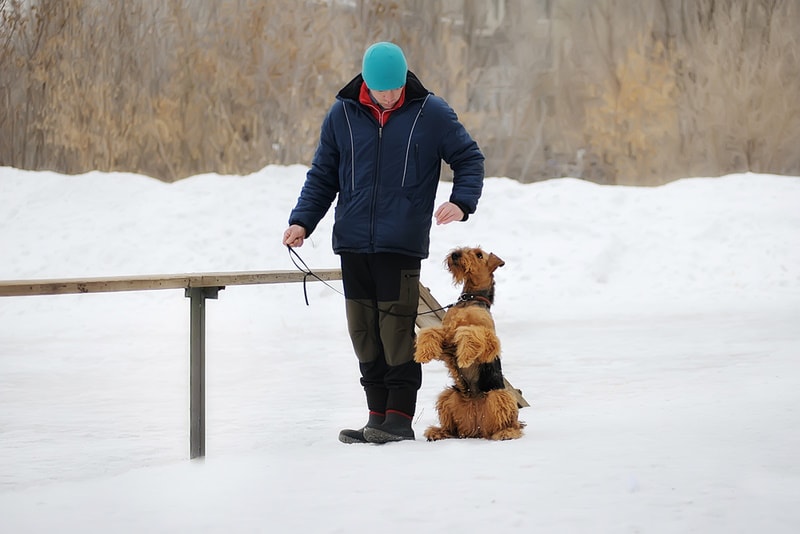Training a Bichon Frise can be a rewarding and enjoyable experience, but it also requires patience, consistency, and a good understanding of their unique needs. Here, we’re going to share some essential tips to help you master the art of training your Bichon Frise. Training your dog can help turn them into obedient adult dogs and understanding the best ways to do it can save you a lot of time. So, let’s discuss.
The 7 Simple Tips on How to Train a Bichon Frise
1. Start Them Early
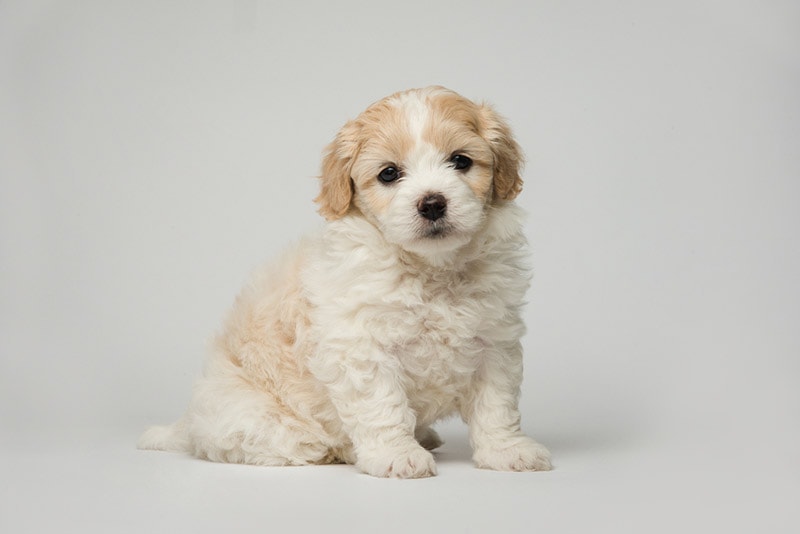
Socialization is crucial for any dog breed, and Bichon Frises are no exception. Early socialization helps them develop into well-rounded and confident dogs. Exposing your Bichon Frise to different people, other pets, animals, places (like dog parks), and experiences from a young age will help them become comfortable and adaptable in various situations. This will also reduce the likelihood of fear-based aggression or anxiety-related behaviors later in life.
Start socializing your Bichon Frise as early as possible, ideally between 6 and 14 weeks of age. Introduce them to new people, other dogs (and cats), and environments gradually, ensuring positive experiences. So, take them for walks in different neighborhoods, enroll them in puppy socialization classes, and organize playdates with other friendly dogs.
Remember to always supervise interactions and step in if anything becomes overwhelming for your dog. Positive reinforcement, treats, and praise will help them associate all these social experiences with positivity and build their confidence.
2. Basic Obedience Training
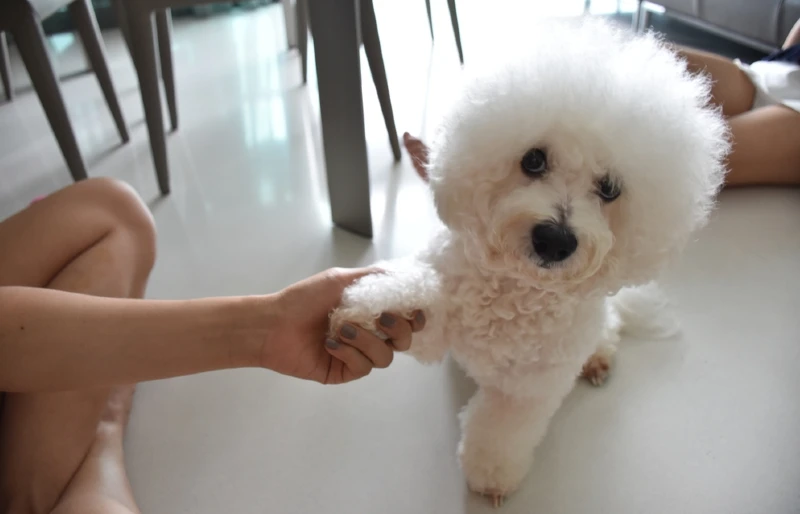
Basic obedience training is essential for every dog, including Bichon Frises. This training establishes a foundation of good behavior and helps you communicate effectively with your furry friend. Start with simple commands such as heel, come, and sit. Use their favorite tasty treat as rewards and positive reinforcement. And be sure to keep training sessions short and frequent, as these pups have a relatively short attention span.
To teach the sit command, hold a treat above your Bichon Frise’s nose and move it back over their head. As they follow the treat with their eyes, their backside will actually lower into a sitting position naturally. Once they’re sitting, say the word “sit” and then give your dog a treat. Repeat this process several times over a period of weeks and slowly reduce the use of treats until the dog responds by sitting each time after only using the verbal command.
And for the stay command, the process is pretty much the same. Start by having your Bichon Frise sit. Hold your hand up, palm facing them, and say the word “stay.” Next, take a step or two back and then return to them. If they stayed in position, give the dog a small treat and bit of praise (either verbally or a head rub). Over time, slowly increase the distance and duration of the stay, always rewarding them for successful stays.
3. Crate Training
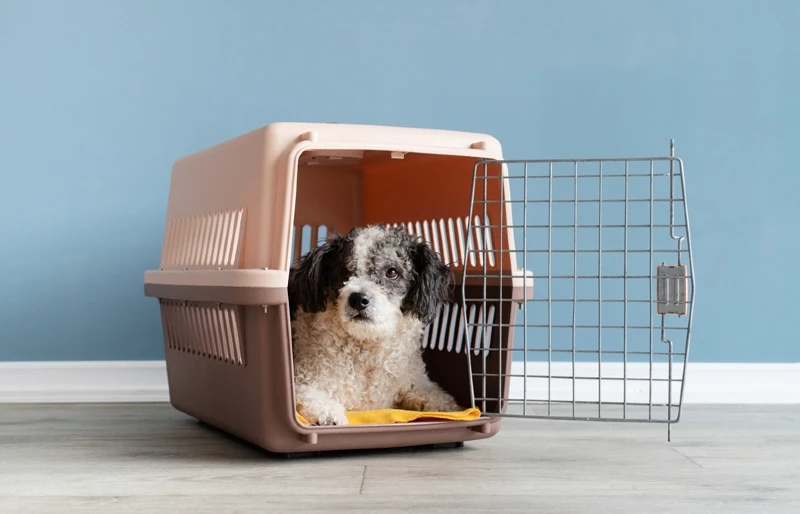
Crate training can be a valuable tool in the housebreaking process and also provides your dog with a safe and comfortable space of their own.
To begin crate training, choose a crate that’s large enough for your Bichon Frise; a 24-inch crate would be ideal for a dog of this size. Place soft bedding (you can use old pillows or sweaters) and a few toys inside to make it cozy. Introduce your dog to the crate at a slow pace over a period of weeks, as doing so gives them enough time to explore it at their own pace. Encourage them to enter the crate by using treats or their favorite toys. Make the crate a positive and rewarding place for them.
4. Potty Training
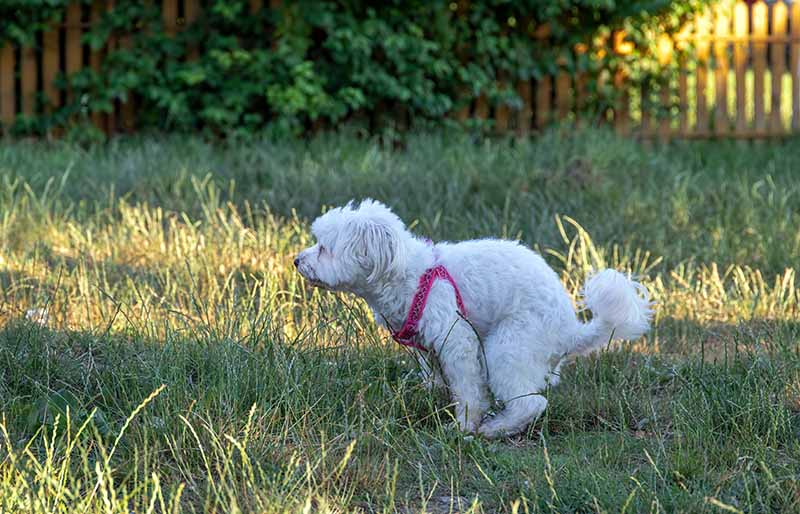
When it comes to potty training, establish a routine, and take your dog outside to the designated potty area frequently, especially after meals, naps, and playtime. Keep them on a leash to prevent distractions and accidents. When they eliminate in the correct spot, reward them with treats and praise. If accidents happen indoors (which they will if the dog is young and new to training), clean them up without scolding or punishing your Bichon Frise. Accidents are all part of the learning process, and positive reinforcement is more effective than negative reinforcement.
5. Agility Training
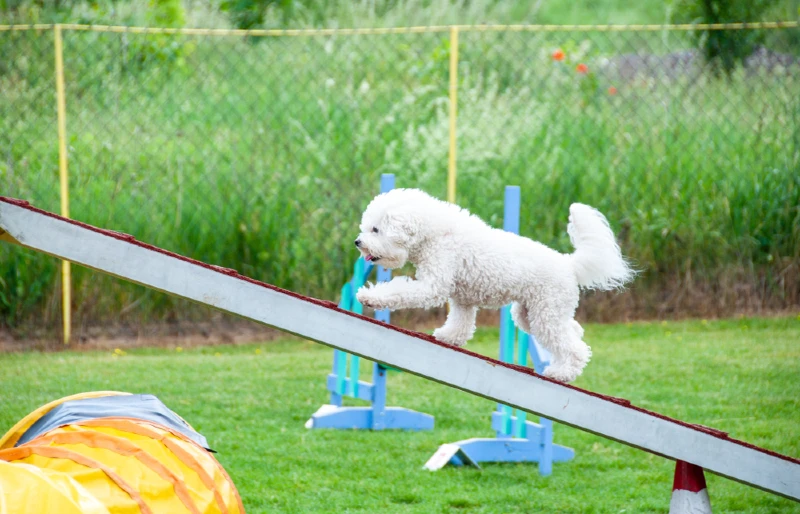
Agility training is a popular and exciting advanced training activity for dogs. It involves navigating a course of obstacles, such as jumps, tunnels, weave poles, and contact obstacles like the A-frame and seesaw. Agility training not only provides physical exercise but also enhances your dog’s coordination, focus, and problem-solving skills. To start this type of training, you’ll need to introduce your dog to each obstacle gradually. Begin by allowing them to explore and sniff each obstacle without any pressure to perform.
Once your Bichon Frise is comfortable with the obstacles, you can start teaching them how to navigate them. Use positive reinforcement and reward your dog for successfully completing each obstacle. As your dog becomes more confident and skilled, you can increase the difficulty level of the course and introduce more complex sequences. Agility training requires patience and consistency but can be a thrilling and rewarding experience for both you and your dog.
6. Nose Work and Scent Detection Training
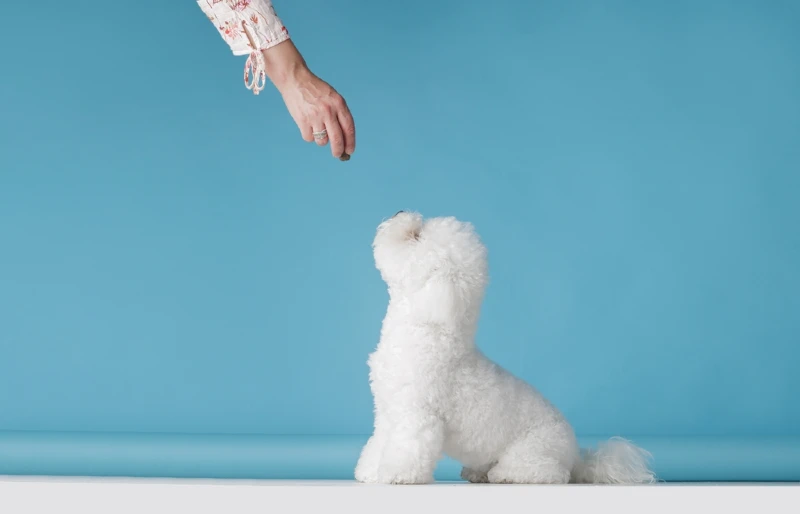
Scent training isn’t just for Bloodhounds, Pitbulls, and German Shepherds. All canines can be trained to tune in more to their sense of smell – including the Bichon Frise. This training can tap into your dog’s incredible sense of smell. These tiny pups have an extraordinary ability to detect scents and can be trained to locate specific odors. Nose work not only provides mental stimulation but also builds confidence and enhances your dog’s natural abilities.
To start nose work training, you’ll need to introduce your dog to the target scent gradually. Begin by pairing the scent with a reward, such as treats or a toy. Allow your dog to sniff and investigate the scent, rewarding them for any interaction with it. As your dog becomes more familiar with the scent, you can start hiding it in different locations and encourage your dog to find it.
Use a cue word or hand signal to indicate when your dog has successfully found the scent and reward them accordingly. Nose work training can be a fun and challenging activity for your dog, providing mental stimulation and a sense of accomplishment.
7. Clicker Training
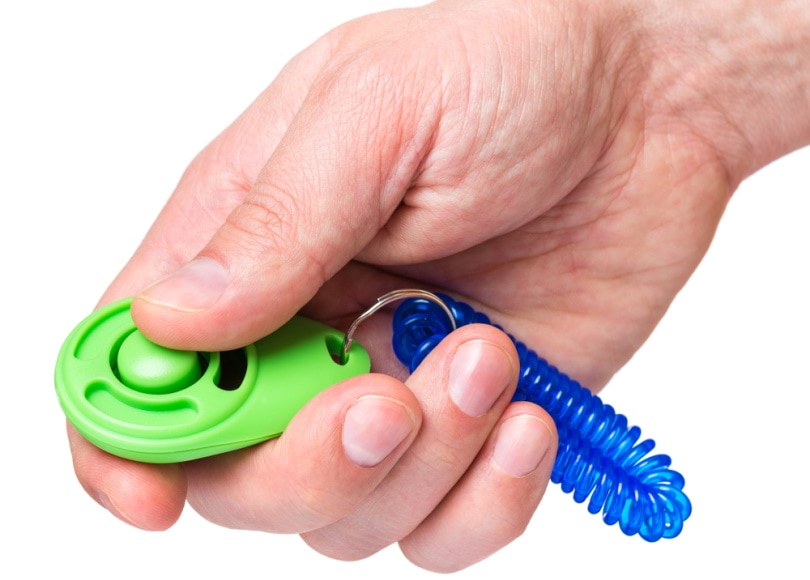
You can also use a clicker to help train your Bichon Frise on certain obedience commands or tricks. So, what is clicker training? It involves using a small handheld device called a clicker to mark desired behaviors. The clicker makes a distinct sound that’s immediately followed by a reward.
This helps your dog associate the sound of the clicker with a positive outcome, making it easier to communicate and reinforce advanced commands. To start clicker training, you’ll first need to charge the clicker by repeatedly clicking and rewarding your dog without any specific command. Once your dog understands that the clicker signifies a reward, you can start using it to mark desired behaviors.
For example, if you’re teaching your dog to fetch an object, you would click the moment they pick up the object and then reward them with a treat or praise. With consistent practice, your dog will quickly learn to associate the clicker with the desired behavior and respond accordingly.

The Importance of Consistency in Training
When it comes to housebreaking your Bichon Frise, consistency is crucial. Establishing a routine and sticking to it will help your dog understand what’s expected of them. This means taking them outside to the designated spot at the same times each day and using consistent commands. By doing this, you’re creating a predictable (and safe) environment for your Bichon Frise, which will make it easier for them to learn and adapt.
Also, note that supervision is essential during the housebreaking process. This means keeping an eye on your dog at all times and being aware of their behavior and body language. This will allow you to quickly intervene and redirect the pup if they show signs of needing to go potty indoors. Lastly, remember to be patient. Housebreaking can take time, and yes, accidents are all part of the process. So, stay calm, patient, and positive, and remember that consistent training and supervision will eventually lead to success.
Wrapping Up
Unleashing your Bichon Frise’s potential through various types of training can be very fun and rewarding. It allows you to tap into your dog’s natural intelligence, abilities, and instincts, fostering a stronger bond and can make your daily life with your dog much easier. Whether you choose to explore advanced obedience commands, agility training, nose work, or advanced tricks, the key is to be patient, consistent, and positive in your approach. Remember to always tailor the training to your dog’s individual needs and abilities, and most importantly, have fun along the way.
- You may also like to know: How Much Exercise Does a Bichon Frise Need? Vet-Reviewed Advice
Featured Image Credit: Eudyptula, Shutterstock

